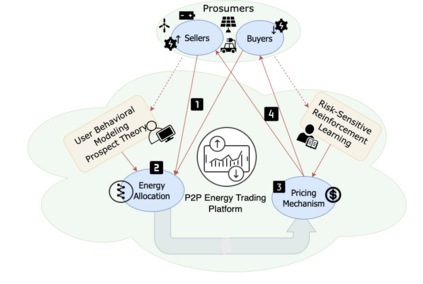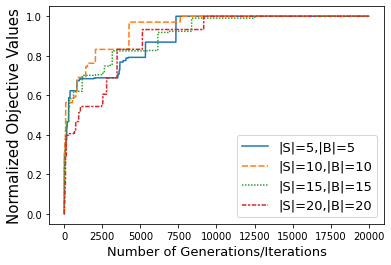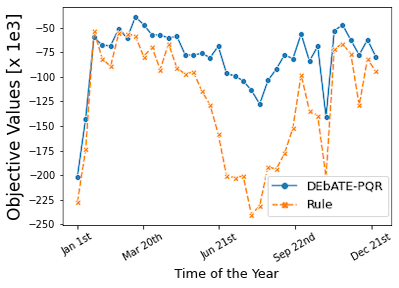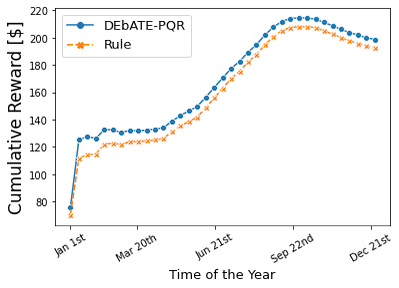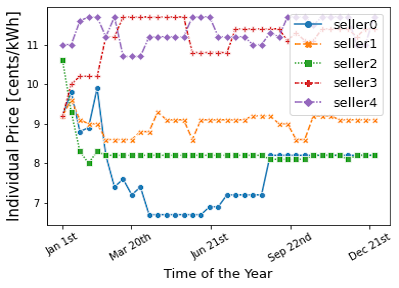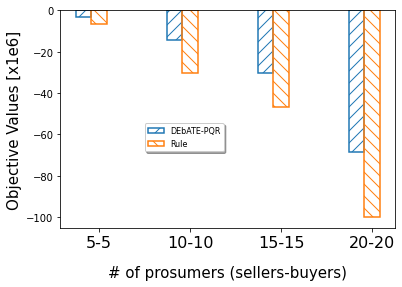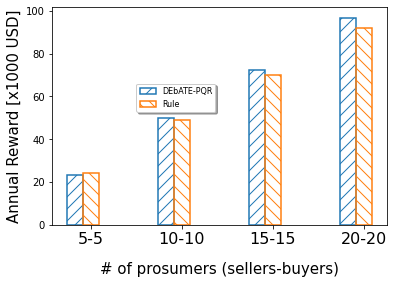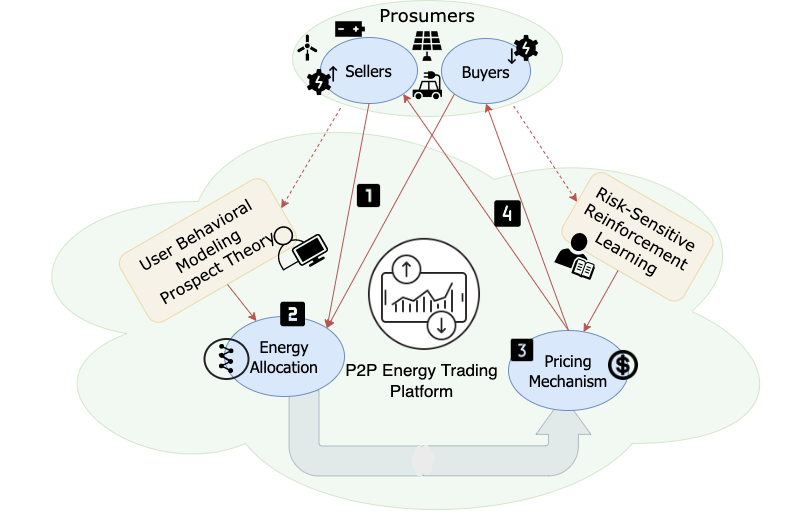The widespread adoption of distributed energy resources, and the advent of smart grid technologies, have allowed traditionally passive power system users to become actively involved in energy trading. Recognizing the fact that the traditional centralized grid-driven energy markets offer minimal profitability to these users, recent research has shifted focus towards decentralized peer-to-peer (P2P) energy markets. In these markets, users trade energy with each other, with higher benefits than buying or selling to the grid. However, most researches in P2P energy trading largely overlook the user perception in the trading process, assuming constant availability, participation, and full compliance. As a result, these approaches may result in negative attitudes and reduced engagement over time. In this paper, we design an automated P2P energy market that takes user perception into account. We employ prospect theory to model the user perception and formulate an optimization framework to maximize the buyer's perception while matching demand and production. Given the non-linear and non-convex nature of the optimization problem, we propose Differential Evolution-based Algorithm for Trading Energy called DEbATE. Additionally, we introduce a risk-sensitive Q-learning algorithm, named Pricing mechanism with Q-learning and Risk-sensitivity (PQR), which learns the optimal price for sellers considering their perceived utility. Results based on real traces of energy consumption and production, as well as realistic prospect theory functions, show that our approach achieves a 26% higher perceived value for buyers and generates 7% more reward for sellers, compared to a recent state of the art approach.
翻译:认识到传统的中央电网驱动能源市场为这些用户提供了最低利润,最近的研究将重点转向分散的同侪能源市场;在这些市场上,用户彼此交换能源,其好处大于购买或向电网出售能源。然而,P2P能源贸易的大多数研究在很大程度上忽略了交易过程中用户的观念,假设不断供应、参与和完全遵守,因此,这些办法可能导致消极态度,并随着时间的推移减少参与。在本文件中,我们设计了一个自动的P2P能源市场,其中考虑到用户的看法。我们采用前景理论来模拟用户的看法,并制定一个优化框架,以便在满足需求和生产的同时尽量扩大买方的看法。鉴于优化问题的非线性和非稳定性性质,我们建议贸易能源交易采用基于现实性演变的Algorithm法,假设持续供应、参与和充分遵守。此外,我们采用了一种风险敏感性较高的Q类学习方法,将成本感知的P2Pe2P能源市场市场市场设计纳入用户的看法。我们采用了一种基于最佳消费价值的模型,将风险性价比的模型作为我们所认识的最佳价格机制。

